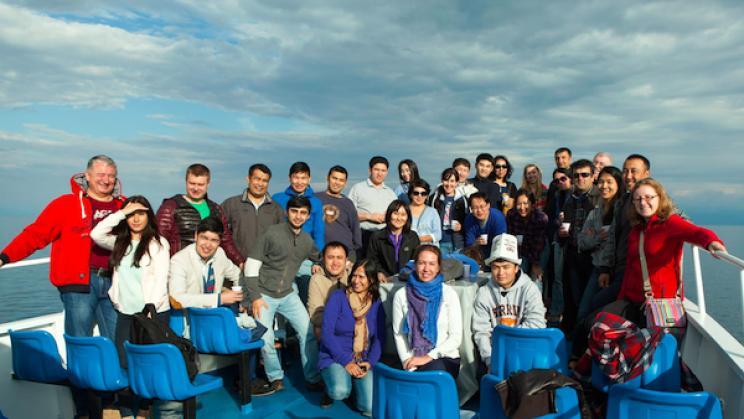
Issyk-Kul, Kyrgyzstan
Stockholm International Peace Research Institute (SIPRI) together with the University of Central Asia’s Institute of Public Policy and Administration (UCA IPPA), the United Nations University–Maastricht Economic and Social Research Institute on Innovation and Technology (UNU–MERIT) and the International Security and Development Center (ISDC) held a joint summer school on ‘Impact Evaluation Methods in Central Asia’ from the 21–28 June 2015 in Issyk-Kul, Kyrgyzstan.
It was the second summer school run by SIPRI and its partners through international cooperation. The first, on ‘Labour Markets in Central Asia’, took place in 2014 and was attended by 20 Central Asian researchers, young professors, doctoral students and government officials.
This year the school brought together 27 participants representing development agencies, non-governmental organizations (NGOs), higher education and research institutions based in Kyrgyzstan, Kazakhstan, Tajikistan, Uzbekistan, Afghanistan, Russia and Bangladesh. Participants included Saferworld Kyrgyzstan, the Organization for Security and Co-operation in Europe (OSCE) Office in Tajikistan, the Soros-Foundation Kazakhstan, BRAC Bangladesh, the Mountain Societies Development Support Programme in Kyrgyzstan, the Central Asian Development Institute in Uzbekistan, Rossotrudnichestvo in Russia and the Aga Khan Foundation Afghanistan, among others.
Through interactive sessions, participants learned the theory and practice of rigorous impact evaluations, experimental and non-experimental methods, and related quantitative and qualitative data collection techniques based on several case studies. They discussed the importance of these instruments and their role in the design and assessment of public policies and development interventions.
The curriculum was taught by SIPRI experts, Dr Anastasia Aladysheva and Dr Damir Esenaliev, and regional and international experts, including Dr Tara Kaul (3ie), Prof. Tilman Brück (ISDC), Dr Eleonora Nillesen (UNU–MERIT), Dr James Thurlow (International Food Policy Research Institute), Dr Judy Yang (World Bank) and Dr Saida Ismailakhunova (World Bank).
The summer school was an excellent capacity-building event that also served as a basis for establishing professional connections. It was funded by 3ie (International Initiative for Impact Evaluation) as a part of the research project ‘Impact evaluation of LivingSidebySide®, peace-building educational programme in Kyrgyzstan’. 3ie is an international grant-making NGO promoting evidence-informed development policies and programmes in low- and middle-income countries.